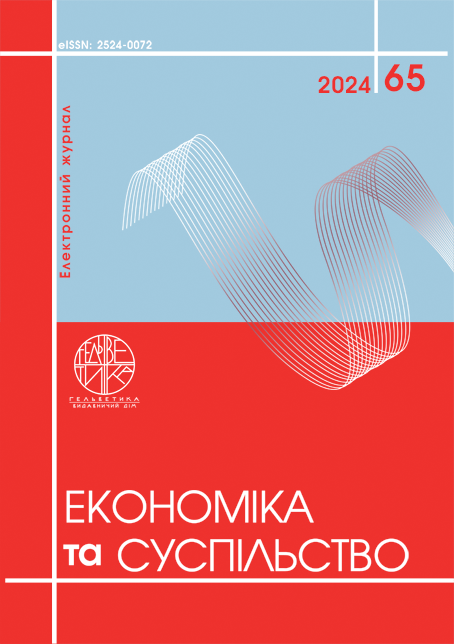ОРГАНІЗАЦІЯ ПЕРЕВІРКИ ЯКОСТІ ВИКОНУВАНИХ БУДІВЕЛЬНИХ ПРОЕКТІВ
Анотація
Стаття присвячена виділенню ключових аспектів організації перевірки якості виконуваних будівельних проєктів. В статті висвітлено методи та підходи до організації ефективної системи контролю якості. Обґрунтовано, що прийняття в експлуатацію закінчених будівництвом об’єктів поділяється на прийняття об’єктів державної та іншої форми власності. Подано перелік відповідальних осіб, що входять до кожної групи. Визначені ролі і межі відповідальності учасників відповідних комісій, а також заходів прийняття в експлуатацію об’єктів різної форми власності із визначеними етапами перевірки якості виконуваних будівельних проєктів. Зроблено висновок, що організація перевірки якості виконаних будівельних проектів потребує чіткої координації між усіма учасниками процесу, включаючи замовників, підрядників, проектувальників та контрольні органи.
Посилання
Кукоба В. П. Організаційне проектування підприємства. К. : КНЕУ, 2010. 420 с.
Лівінський О. М. Менеджмент якості в будівництві і геном ділової досконалості організації. К. : Центр учбової літератури, 2018. 230 с.
Марченко О. М. Теорія організації. Львів : ЛДУВС, 2015. 359 с.
Назарчук Т. В. Менеджмент організацій. К. : Кондор, 2024. 493 с.
Партин Г. О. Ризики аутсорсингової діяльності будівельних організацій. Науковий вісник Херсонського державного університету. 2014. № 9. С. 120-124.
Савенко В. І., Лівінський О. М. Менеджмент якості в будівництві та виробничі організаційні системи. К. : Центр учбової літератури, 2020. 128 с.
Kukoba V. P. (2010) Orhanizatsiyne proektuvannya pidpryyemstva [Organizational design of the enterprise]. Kyiv: KNEU, 420 p. (inUkrainе).
Livinsʹkyy O. M. (2018) Menedzhment yakosti v budivnytstvi i henom dilovoyi doskonalosti orhanizatsiyi [Quality management in construction and the gene of business excellence of the organization]. Kyiv: Tsentr uchbovoyi literatury, 230 p. (inUkrainе).
Marchenko O. M. (2015) Teoriya orhanizatsiyi [Theory of organization]. Lʹviv: LDUVS, 359 p. (inUkrainе).
Nazarchuk T. V. (2024) Menedzhment orhanizatsiy [Management of organizations]. Kyyiv: Kondor, 493 p. (inUkrainе).
Partyn H. O. (2014) Ryzyky aut·sorsynhovoyi diyalʹnosti budivelʹnykh orhanizatsiy [Risks of outsourcing activities of construction organizations]. Naukovyy visnyk Khersonsʹkoho derzhavnoho universytetu, vol. 9, pp. 120-124.
Savenko V. I. and Livinsʹkyy O. M. (2020) Menedzhment yakosti v budivnytstvi ta vyrobnychi orhanizatsiyni systemy [Quality management in construction and production organizational systems]. Kyiv: Tsentr uchbovoyi literatury, 128 p. (inUkrainе).

Ця робота ліцензується відповідно до Creative Commons Attribution 4.0 International License.


